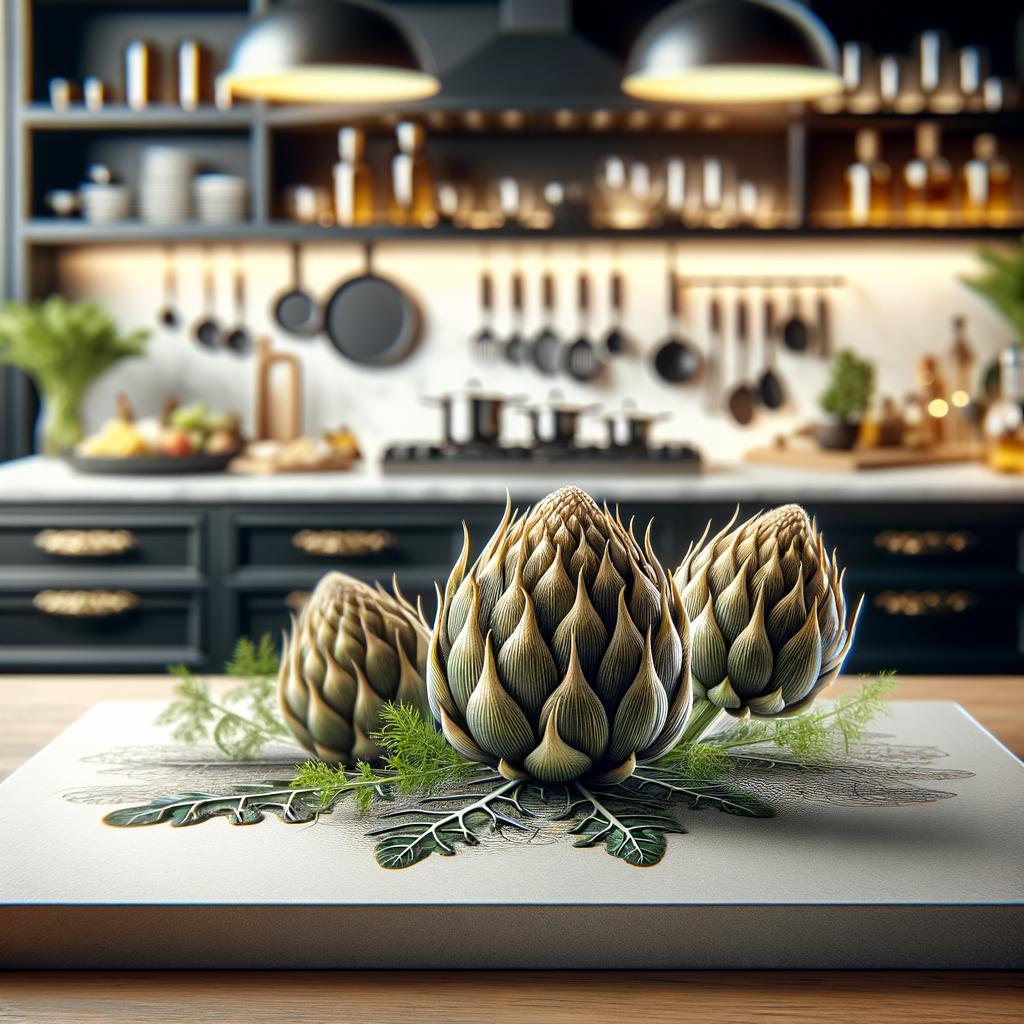Cardoons

Description Cardoons, also known as the artichoke thistle, are a unique vegetable that has a striking resemblance to the common celery, but with a silvery hue. The plant, native to the Mediterranean region, features long, slender stalks and large, thistle-like flowers, adding an exotic touch to any garden. The flavor of cardoons is somewhat akin to artichokes, with a hint of bitterness that can be tamed through proper cooking. Their texture, when cooked, is tender and succulent, offering a delightful culinary experience. One of the unique characteristics of cardoons is their silver-grey leaves, which set them apart from their green counterparts in the vegetable world.
Primary Uses Cardoons are a versatile ingredient, commonly used in Mediterranean cuisines, particularly in Italy, Spain, and France. They can be boiled, braised, fried, or baked, and are often used in soups, stews, and casseroles. Cardoons also make a delicious gratin when paired with cheese and cream. In addition, cardoons have been used for their medicinal properties. Historically, they were used to aid digestion and soothe urinary tract infections.
History The history of cardoons is as rich and intriguing as its flavor. They have been cultivated since ancient times, with the Greeks and Romans appreciating their medicinal and culinary qualities. In the Middle Ages, monks cultivated cardoons in monastery gardens for their healing properties. Over time, their popularity spread throughout Europe, and they were brought to the Americas by early settlers. There's an interesting folklore associated with cardoons in Spain, where they are traditionally eaten on Christmas Eve, believed to symbolize the silver sword of St. James, the country's patron saint.
Nutritional Information Cardoons are a nutritional powerhouse, packed with vitamins and minerals. They are rich in dietary fiber, which aids digestion, as well as Vitamin K, essential for bone health. They also contain notable amounts of magnesium, potassium, and iron. Cardoons have a lower calorie count compared to other similar vegetables, making them a great choice for those watching their weight. However, they are also high in sodium, so those with high blood pressure should consume them in moderation. Compared to celery, cardoons offer a higher nutritional value, with a richer mineral content and a distinctive flavor profile.

